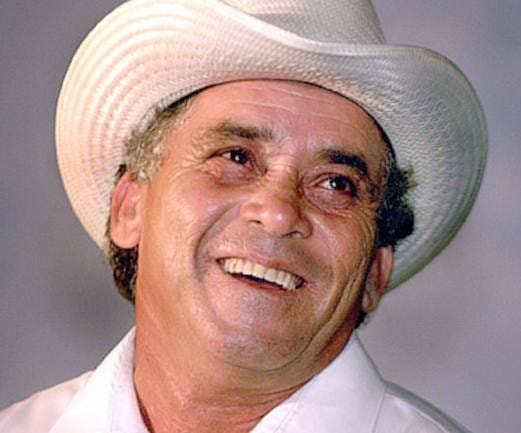
POLO MONTAÑÉZ, EL GUAJIRO NATURAL. La noticia cayó como un rayo que nos partía el alma, en un sin sentido supimos que había muerto Polo, el que nos llenó de esperanzas los oídos, que nos demostró que aún el deseo de soñar era realizable. Nacido en El brujito, Pinar del Río en 1955, se realizó como compositor de canciones y cantautor.
Llegó a ser el tercer cubano premiado con Disco de Platino con su primer CD «Guajiro Natural», al cual siguió «Guitarra Mía». Autor de más de 100 temas, cantante de las sonoridades típicas de los campos; figura mítica por su historia y sencillez. De pura formación autodidacta, hacía los guateques o fiestas nocturnas del lugar, tras las jornadas de trabajo en… More
The news struck like a lightning strike that broke our soul, in a senseless sense we knew that Polo had died, the one that filled our ears with hope, which showed us that the desire to dream was achievable. Born in El witchito, Pinar del R íoo in 1955, he was performed as a songwriter and singer-songwriter.
He became the third Cuban awarded Disco de Platinum with his first CD ′′ Guajiro Natural «, which followed ′′ Guitar Mia «. Author of more than 100 songs, singer of the sound of the fields; mythical figure for their history and simplicity. Of pure self-taught training, he made the guateques or night parties of the place, after working days in the most dissimilar trades on earth. Criticism recognizes the merit of universalizing the truest rhythms of Cuba’s camps. His style and quick insertion into the Cuban music world, departed from the way he imposed himself on popular taste. Fernando Borrego Linares, son of July and Lucrecia. His father was dedicated to making coal so he went from one side to another of the lomerio always looking for a way to be near the mountain, his main raw material; he constantly changed from home which he humbly built with guano roofs, yaguas and floors of land. He lived in the Ca ñada del Infierno, White House, Finca del Cusco and, in 1972, occupied one of the homes in the Las Terrazas community. Julio liked music and to reverse the scarce free time, he joined the group Cantores del Rosario with which they lit up guateques and serenades throughout the lomer íoo. Polo climbed into a drawer and touched the tumbler (which was nothing but a polished avocado trunk with cow belly leather). Soon he started singing and playing guitar becoming the leader of the group. Laborally, he had several occupations: coalman, cow computer, tractorist, cane cutter, among others. He composed his first song in 1973, which he titled ′′ This Happy Time «, then he kept on creating, but kept his numbers in a drawer because he didn’t consider them of value. He composed with a mixture of genres, like an ajiac, referring to the rhythms he knew, so formed a well-owned style with themes about personal events or others impregnated with peasant elements: The yunta de ox, the smell of coal, the scent of the batey. Polo Monta ñez and his musicians respected the patterns of each genre tackled, and presented the musical format as a fluctuating element in the alternate incorporation of different doorbells. In less than three years and with only two recorded albums, Polo Monta ñez rose to fame and became a popular idol in Cuba, thanks, among other details, to his simplicity and a charisma that captivated. His peasant essence, which he defended even in the most city sites inside and outside Cuba, helped foster that kind of reverence they professed him. He visited Colombia twice, twice, France; he was also in Portugal, Belgium, Netherlands, Italy, Mexico, Ecuador, Costa Rica. He shared with artists like Ruben Blades, Andy Monta ñez, Margarita Rosa de Francisco, Cesar Évora, Candido Fabré, Francisco Repilado (Compay Segundo), Eliades Ochoa, Adalberto Alvarez, Danny Rivera and others. On November 26, 2002, aged only 47 in a traffic accident and after several days of seriousness in which the Cuban people and the world were begging for their health, died leaving a great pain between all followers of his contagious music, his work was left for the history of Cuban popular music. ·